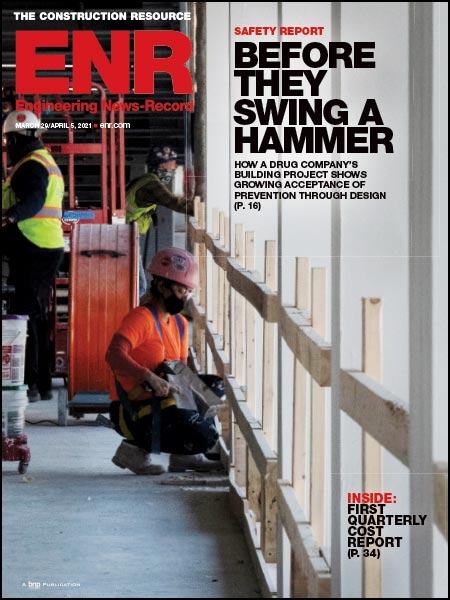A Philadelphia grand jury has charged demolition contractor Griffin Campbell with six counts of third-degree murder for his role in the city’s deadly June 5 building collapse.
Campbell, owner of Campbell Construction, is accused of using improper and unsafe methods to bring down an abandoned four-story building owned by New York developer Richard Basciano to make way for a mixed-use development.
An unsupported multi-story wall collapsed onto an adjacent one-story Salvation Army store, killing six and injuring 14.
An investigation revealed that Campbell had not installed proper bracing on the building’s sidewalls, electing to begin the project by removing the facade and floor joists.
Vibrations from heavy equipment and underground trains are suspected to have further compromised the unsupported wall’s structural integrity, resulting in the collapse.
In addition, excavator operator Sean Benschop was found to have been under the influence of marijuana and painkillers while on the job that day.
Both Benschop and Campbell face charges of involuntary manslaughter, reckless endangerment and criminal conspiracy, as well as a total of nearly $400,000 in fines levied by the U.S. Occupational Safety and Health Administration (OSHA) for “willful, egregious violations” of the agency’s demolition standards.
In addition to the hazardous bottom-up demolition approach and removal of lateral support walls that were more than one-story high, OSHA cited Campbell and Benschop with numerous employee and site safety violations and failure to follow through on a required engineering study.
Basciano’s company, STB Investments, selected Campbell Construction’s $112,000 bid over several othr contractors’ substantially higher bids to demolish the building. Basciano himself has not been charged, though prosecutors say the grand jury has yet to complete its work.
Emails published by the Philadelphia Inquirer this summer indicate that STB representatives had attempted to gain access to the Salvation Army’s property to conduct demolition operations, but they began work before reaching an agreement with the charity. Numerous civil lawsuits have also been filed against Campbell, Benschop and Basciano by victims of the collapse and their families.
The incident raised concerns about the City of Philadelphia’s oversight of construction and demolition projects. City officials, including Deputy Mayor Alan Greenberger, had been copied on the STB-Salvation Army correspondence, but failed to take action when safety concerns were raised.
The city’s Dept. of Licenses and Inspections also dispatched longtime inspector Richard Wagenhoffer to investigate multiple complaints from the public about activity at the site.
He conducted his visit in mid-May, three weeks before the collapse, but reported no violations. Wagenhoffer died of a self-inflicted gunshot wound one week after the incident, apologizing in a suicide video for failing to take action.
In the days following the collapse, the city revamped its demolition codes, policies and procedures—including banning mechanical demolition adjacent to occupied structures.



Post a comment to this article
Report Abusive Comment